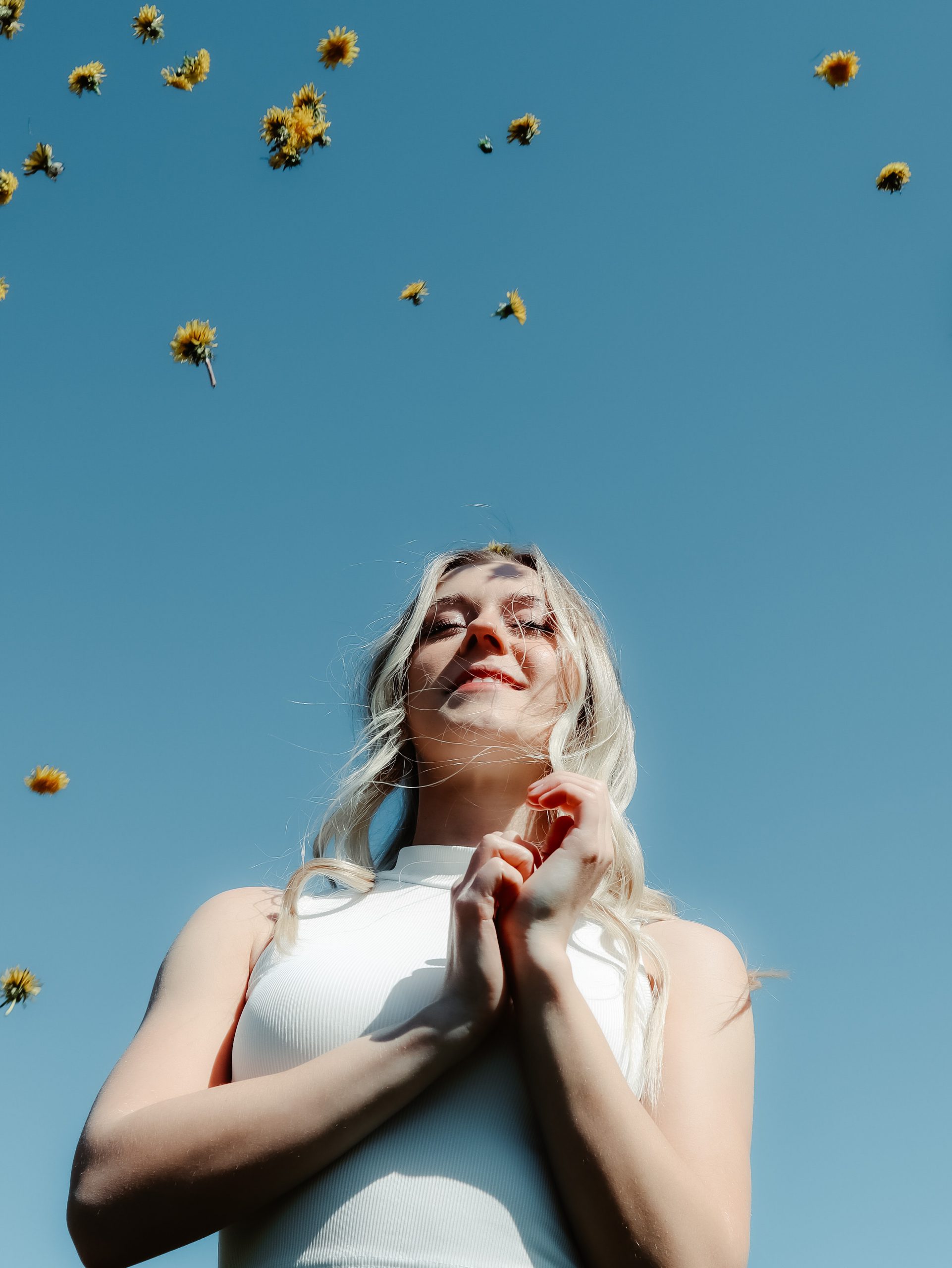Written by Fleur MacInnes
Photo by Victoria Rokita.
On the 21st August 2019, I posted a letter. It was two weeks after my 21st birthday, and the contents inside that letter were about to change the course of my twenties. Of my life. Inside was a message to my mum, telling her that we were not going to be in contact again unless I was ready.
In some ways, it was a long time coming. In other ways, it was probably the most impulsive decision I’ve ever made. It took me a minute to write, another to address, and about ten to drive to the post box to send it. I remember feeling relieved that I had stamps that day, because I was afraid that any further thought on the subject would make me change my mind.
After having nine months of therapy when I was 20, I had come to the realisation that my mum had abused my siblings and I. It was a strange conclusion to come to – my brain flashed with recollections of child abuse adverts, bruised arms and whimpering faces in black and white, and I didn’t see myself in any of them. But, as I learned, the kind of abuse my siblings and I endured was harder to portray in fifteen seconds of screen time, and that didn’t make it any less real. After months of nail biting, anxiety attacks and uncertainty, the decision was made, and suddenly, my mum wasn’t there anymore.
Deciding to remove a parent from your life is plagued with stigma.
A few weeks after I stopped speaking to my mum, I saw a tweet that said, ‘I feel so sorry for girls who aren’t close to their mums, mine is my best friend and I don’t know what I’d do without her’. That tweet reminded me of the reality of my decision. Deciding to remove a parent from your life is plagued with stigma. Some people believe you owe them your trauma story, some people think that you were the problem, some people just can’t bring themselves to understand why you would make such a decision, because ‘your mum always means well, though!’. At the very least, being forced indoors due to the pandemic has somewhat alleviated the awkwardness of fumbling around the situation.
In the last eighteen or so months of navigating life without my mum, I’ve felt a sense of trying to reinvent myself as a person separate from her existence. I realised the other day that it was probably no coincidence that my mum would scream at us if there was 80’s music on the telly, and now my most listened to playlist on Spotify is ‘All Out 80s’. Now, each time I apply bright red blush to my temples, it feels like an act of defiance against the person who was meant to love me unconditionally.
As I question if I even am a woman, part of me can’t help but wonder if this is just an attempt to escape everything that she wanted me to be.
My own gender expression is fogged with my desperation to be as far away of a person from her as possible. My mum was, is, brilliantly creative, colourful, and different. While I want to take these things in my stride, each time I embrace these elements that also live in me, I feel something niggle at my mind that tells me I should be doing it differently. I want to be who I am, but I don’t want to be her. I don’t want to live my life in grey, but I don’t want to live in her vivid shadow. As I question if I even am a woman, part of me can’t help but wonder if this is just an attempt to escape everything that she wanted me to be.
Reality will never allow me to escape that I am genetically linked to my mother, and the fact that she raised me for sixteen years means that I ought to accept that we will have inevitable similarities. Still, I continue to push against the parts of myself that remind me of her. When I look at myself in the mirror, acknowledging (and accepting) my recent weight gain, I can’t help but hear her voice in my head, telling me that I could afford to be smaller. When I have the audacity to wear colours that bring me joy, I can’t help but hear her telling me that I don’t look pretty anymore. But the memory of that voice is paired with an eery silence – a reminder that my body, my face, my life, is finally mine now, and I’m not really sure what to do with it.
I have been trying to fill this void with contemplation. Wondering who I am and who I want to be, when I have the ultimate blueprint for the life I want to avoid. In the time that has lapsed since the last time I spoke to my mother, I have started and finished a master’s degree, moved, started a PhD, turned 22, and so many other things that I didn’t get to share with her. But as time continues, I grow more and more okay with that. Maybe my twenties are for me, and no-one else. Not for my mother, nor her absence, but a time for me to discover myself for what I am, rather than what I am not.
About The Author
Fleur MacInnes is a queer, feminist historian, studying for a PhD in at the University of Oxford. (Pronouns: she/they)
Follow on IG: @queerfeministhistory | Follow on Twitter: @queerfeministry

